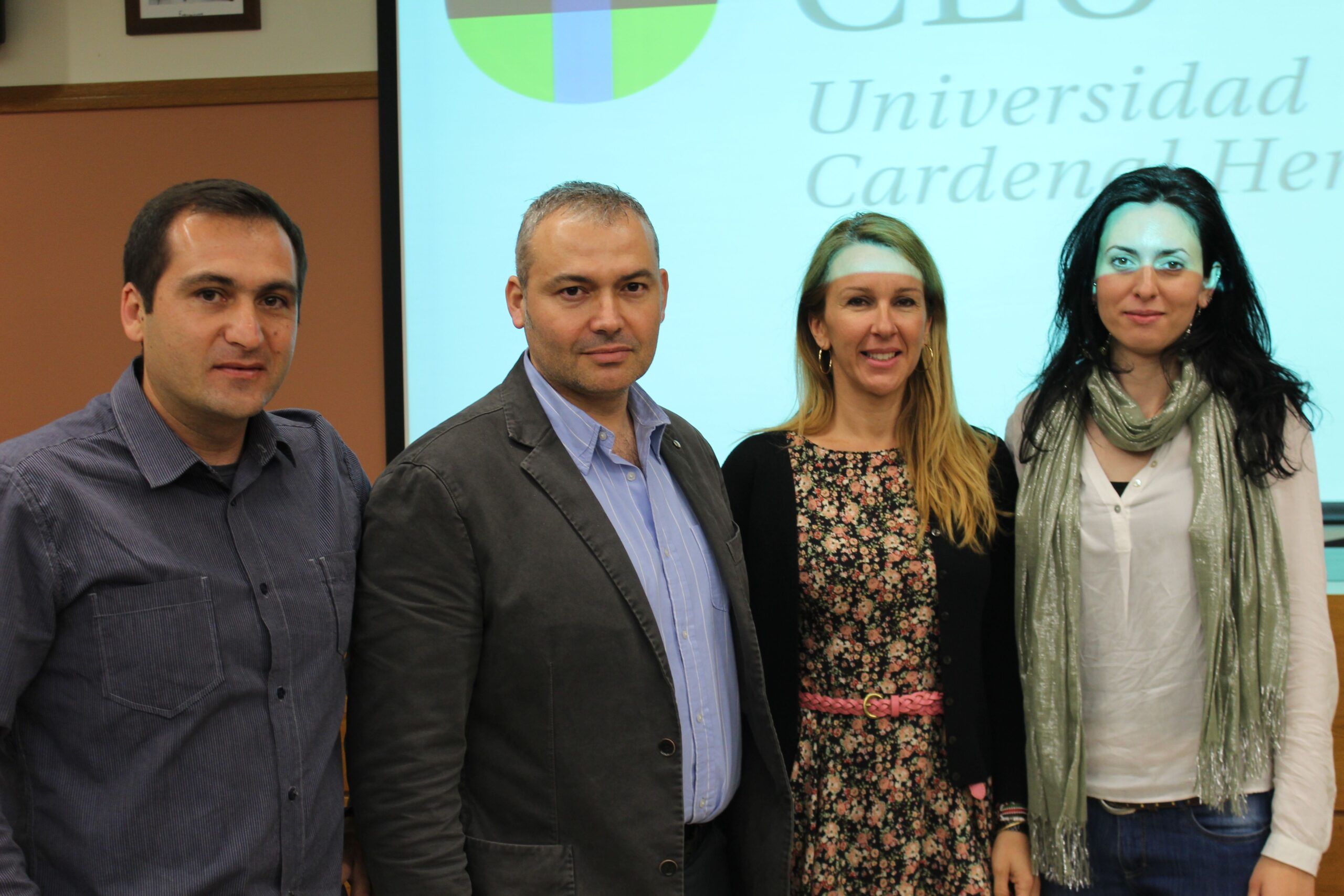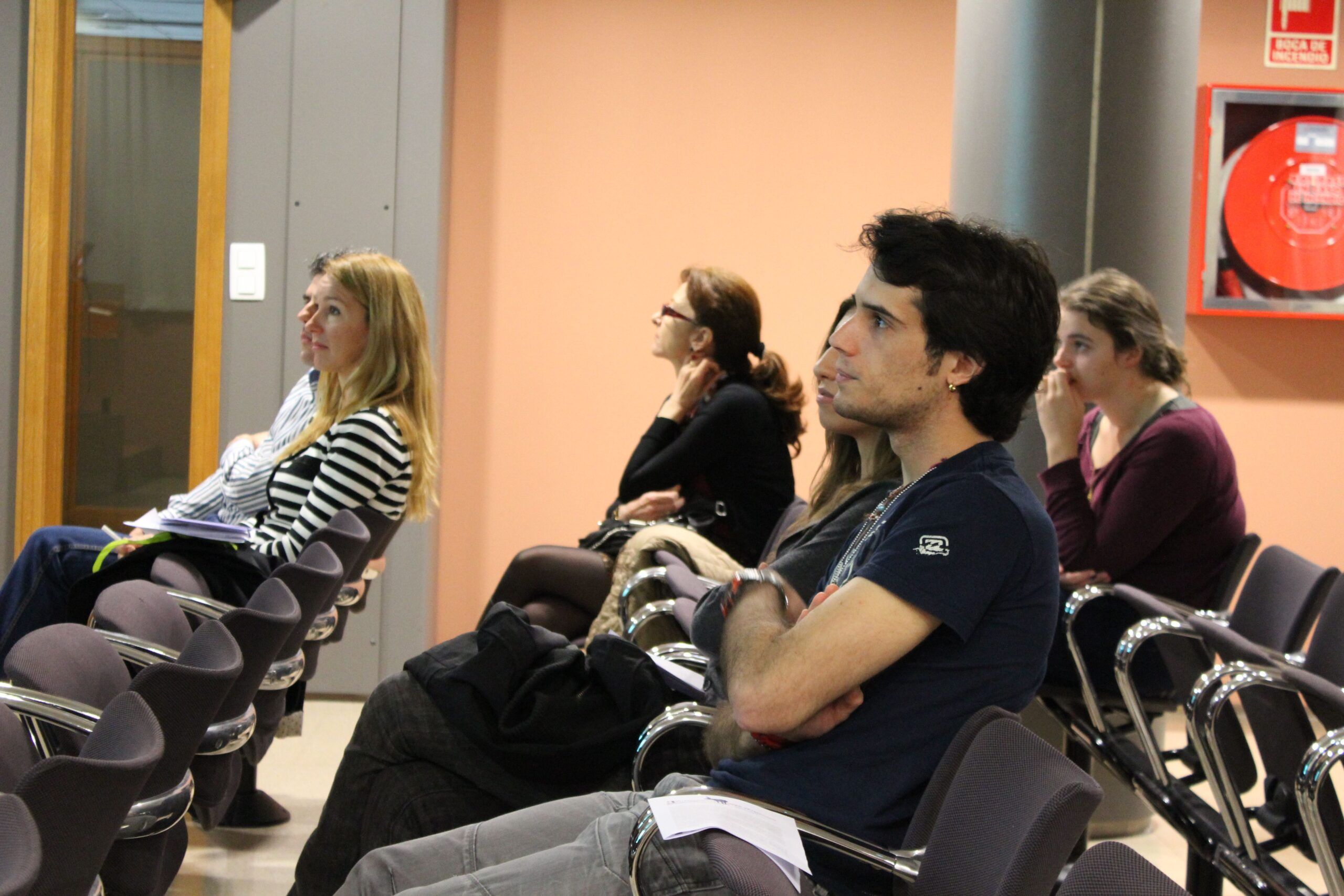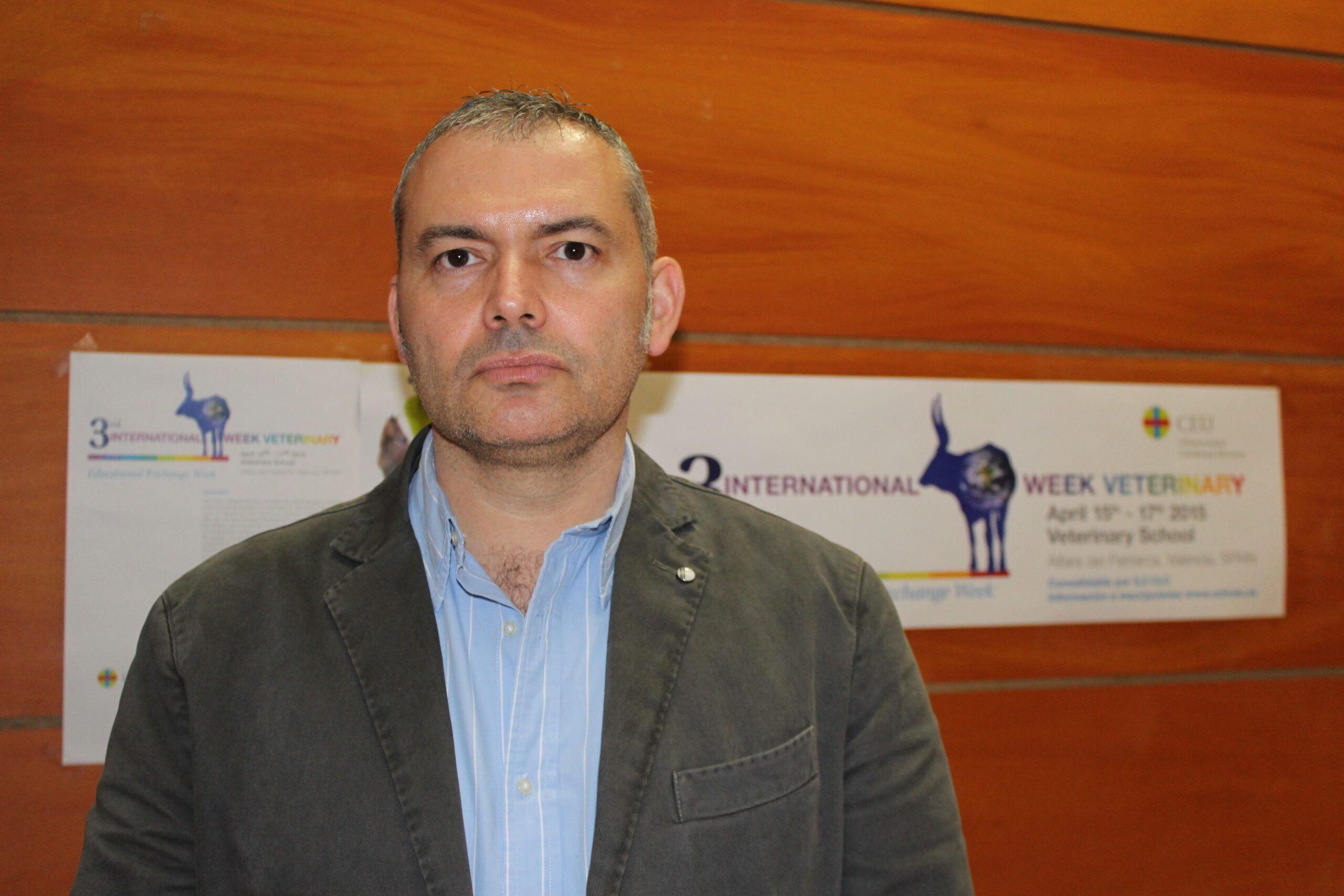Prof. Dr. Cristiano Bombardi from the Department of Veterinary Medical Sciences at the University of Bologna was invited to the 3rd International Week Veterinary at the Universidad CEU Cardenal Herrera and gave a lecture about “Amygdaloid complex: structure and function”. In the following interview he told us about his main research fields, about the importance of international exchange and the most important characteristics of a good veterinarian.

What are the main activities of your research field?
My main research field is focused on the neuromorphology, especially regarding the amygdaloid complex, the hippocampal region, the muscle spindle, the innervations of shoulder joint, the enteric nervous system, and the spinal cord of different species of animals. Those are, for example, rats, dogs, cats, horses, sheep, dolphins, monkeys – and also humans. These studies are mainly taken out to research more about the amygdaloid complex. I spend a lot of time researching and I think we are on a good way – we have to pass our knowledge on so that further steps can be taken.
Do you think research should be a main part of the university career?
I think research is very important for students. I always try to integrate research in the courses to widen the students’ horizons and inform them about my current researches and achievements so that they can see that science is dynamical, that there is something happening. Examining and reading books is important, but not enough.

You worked in the Department of Neurobiology in Finland. Do you think the international exchange is important also in the field of Veterinary Medical Sciences?
Yes, definitely. Exchanging information, research results and experience with colleagues from other parts of the world is very, very important. During my time in Finland I could learn a lot about how Scandinavians do research, about their methods and I could pass on my knowledge. In Scandinavia, there is much more money invested in research than, for example, in Italy. We just do not have the financial means. Those, however, are needed for conducting specified researches.
What inspired you most in your career?
Actually, I believe, that I was first inspired at the early age of four when I was watching a funny movie in which a man switched his brain with another man. I was so fascinated by this story that I wanted to learn more about Neuroscience, about how our brain works. And, obviously, I have always loved animals.
What makes a good veterinarian?
First of all, you should, of course, like animals. Respecting animals is so important – I think universities should also focus more on ethics, because we should not see the animals as a pure object of research, but as a living being. The studies have changed a lot. When I studied, the education was much more theoretical, nowadays it is a good combination of theoretical and practical training, which I think is the best way of becoming a good veterinarian.







